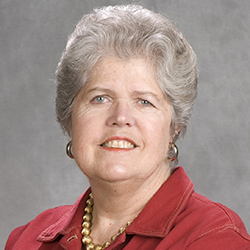By EMILY GILL
Social mobility has long been the United States’s answer to inequality. Equality of opportunity should allow individuals to rise as far as their abilities and hard work can take them. In the twenty-first century, however, the promise of the American dream tends to ring hollow. According to studies by the Pew Charitable Trusts and others, only about one in 20 of those born in the bottom fifth of the income scale will rise to the top fifth; most of these will not even achieve middle-class status. Although our faith in mobility may explain in part our comparatively ungenerous welfare state, today the countries with the greatest equality tend to be those with the highest mobility.
Harvard philosopher Michael Sandel poses an explanation both for many of our policies and also for the rising animosity between those at the top and those at the bottom. In his book The Tyranny of Merit, he blames the meritocratic ethic, or the idea that those who succeed have done so almost solely on the basis of their own talents, whereas those who fail have done so because they are lacking in talent, effort, and/or character. As put by Sandel, “Among the winners, it generates hubris; among the losers, humiliation and resentment.” Those at the top and those at the bottom each infer that they deserve their fates, resulting in smugness at the top and demoralization at the bottom. More important, Americans have increasing difficulty in viewing themselves as sharing in a common fate.
For reasons of both efficiency and fairness, Sandel believes that it is fine to hire people on the basis of merit. The meritocratic ideal goes wrong, however, when it places so much weight upon personal responsibility, taking little account of luck, chance, or in biblical terms, grace. As with Calvinism and the Protestant ethic, manifestations of salvation or worldly success should not be taken to mean that these are entirely self-earned and therefore deserved.
The prosperity gospel is a contemporary exemplar of the idea that salvation or success is an earned achievement. This trajectory also appears in arguments that those with higher health care costs should pay higher premiums for care: those who are irresponsible regarding their health should pay the price. The meritocratic ethic is also adopted by liberals who suggest that the United States has been great because it is a beacon of moral progress and “on the right side of history.”
Sandel goes on to discuss credentialism as “the last acceptable prejudice.” Although the answer to inequality is thought to be education, credentialism encourages college-educated elites to look down condescendingly upon less-educated working people, who tend to internalize the implied criticism. Although Sandel does not approve of a class system, its moral arbitrariness at least tempers the conclusion that both winners and losers deserve their lot in life.
For Sandel, the problem is not that meritocracy is imperfectly realized, but that the ideal itself is flawed. Even a perfect meritocracy would fail to recognize, first, that our aptitudes and ability to make an effort are in large part a matter of genetics and family background, and second, that we do well when society values the aptitudes that we happen to possess. Better sorting of applicants to top schools does not aid mobility because most of these students are well-off at the outset. Sandel would dismantle “the sorting machine” by instituting a lottery among qualified contenders plus rethinking the value of varied kinds of work so that all may be regarded as contributory to our common project.
— Emily Gill is Caterpillar Professor
of Political Science Emerita, Bradley University.


Recent Comments